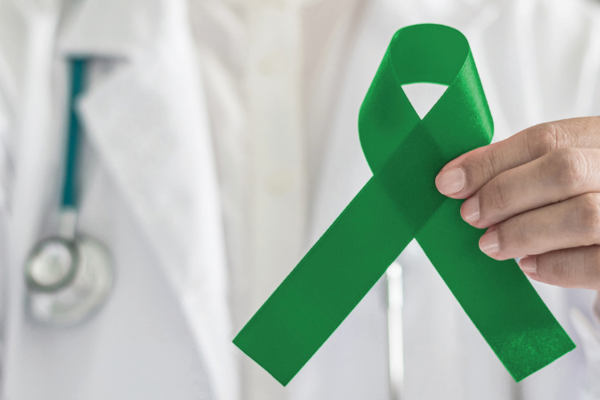At OSC, our physicians can help you with personalized treatment for your cancer. Gallbladder and Bile Duct Cancer are rare but still affect thousands of people around the world. Both cancers can be aggressive and affect the digestive system. Gallbladder cancer is a rare cancer that develops when cells in the gallbladder grow abnormally and form a tumor and bile duct cancer also known as cholangiocarcinoma, is a rare cancer that develops in the bile ducts. The bile ducts are a network of tubes that carry bile from the liver to the small intestine. This month we try to bring awareness to the signs and symptoms of gallbladder and bile duct cancer to increase early detection.
Risk Factors:
- Age: The risk of both of these cancers increases with your age.
- Gender: Women are more prone to gallbladder cancer. Bile duct cancer affects men and women equally.
- Gallstones: The presence of gallstones in your body increases your risk.
- Chronic Inflammation: Conditions that cause chronic inflammation can also cause bile ducts to become blocked and increase your risk of cancer. Conditions like primary sclerosing cholangitis (PSC) or chronic gallbladder inflammation can increase your risk. With PSC, the bile ducts inside and outside of the liver become inflamed and scarred, which can cause the bile ducts to become blocked.
- Congenital Abnormalities: Congenital conditions, like choledochal cysts, caroli's disease, and pancreaticobiliary maljunction, that affect the gallbladder and bile ducts may increase your risk.
Symptoms:
Many people do not experience symptoms until the cancer at a later stage, but if you notice any of these symptoms occurring talk to your doctor.
- Jaundice
- Abdominal pain
- Unexplained weight loss or loss of appetite
- Nausea and vomiting
- Fever and fatigue
- Dark urine
- Itchy skin
Diagnosis:
More often than not gallbladder and bile duct cancers are diagnosed at an advanced stage. However, early detection is key to early diagnosis and easier treatment. If you are experiencing any of the symptoms listed above your doctor may run diagnostic tests on you including:
- Imaging Tests: CT scans, MRIs, or ultrasounds.
- A Biopsy
- Blood Tests
Treatment:
Depending on what stage you are when you are diagnosed your treatment may vary. Most often treatment plans for gallbladder and bile duct cancer include: surgery, radiation therapy, chemotherapy, or targeted molecular therapy.
Prevention:
Can gallbladder and bile duct cancer be prevented? Not entirely, but there are ways that you can reduce your risk.
- Maintain a healthy weight
- Eat a balanced diet
- Exercise regularly
- Don’t smoke
Take time this month to educate yourself on gallbladder and bile duct cancer. Knowing the signs and symptoms could save your life!
published: Jan. 31, 2025, 9:20 p.m.

